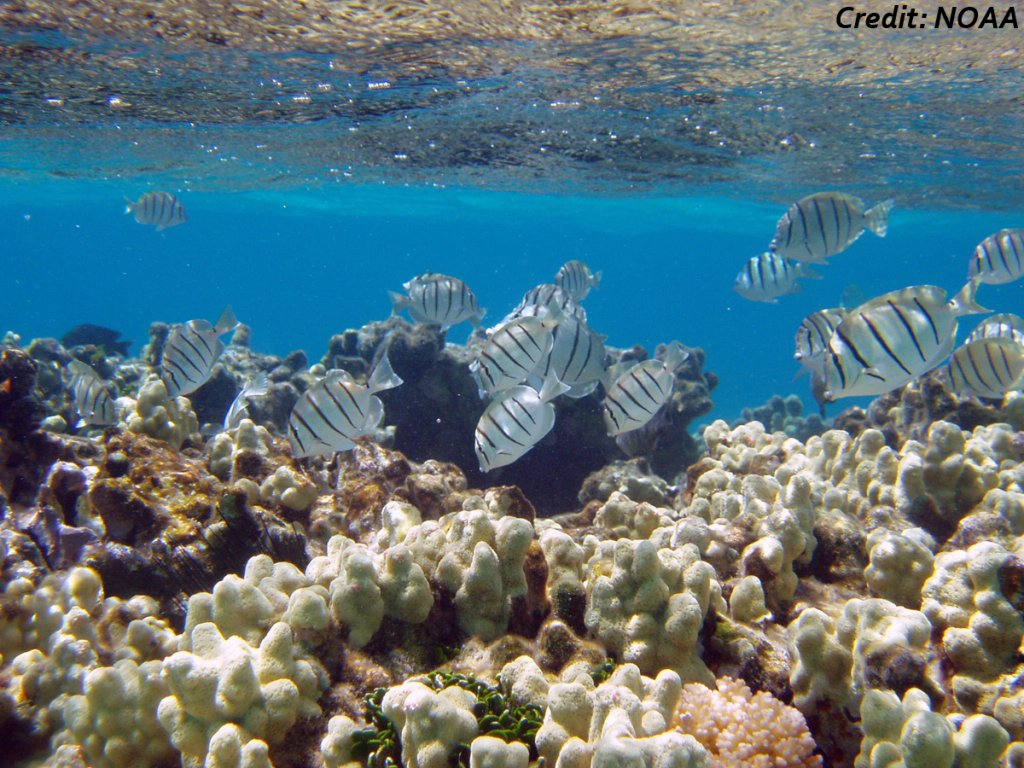Humankind’s biogeochemical experiment: Ocean acidification and “coral reef” dissolution
PRINCIPAL INVESTIGATOR: Michael Guidry
Co-INVESTIGATORS: Eric DeCarlo, Fred Mackenzie
Graduate Trainee: Robert Thompson

Ocean acidification (the process by which the surface waters of the ocean are becoming more acidic due to absorbing atmospheric carbon dioxide generated, in part, by the burning of fossil fuels) has serious implications in terms of its effects on marine ecosystems, especially for those organisms that generate shells or skeletons out of the calcium carbonate. As a consequence of ocean acidification, the ability and rate at which these organisms can create calcium carbonate shells and skeletons will decrease, the physical strength of their skeletons could weaken (a condition similar to osteoporosis), and the organisms could become less resistant and more vulnerable to environmental stress.
Our experimental results demonstrate how future projected increases in temperature and atmospheric CO2 (via the process of ocean acidification) will increase how quickly marine carbonate minerals will dissolve; specifically magnesian calcites. Magnesian calcites are important components of reefs environments as they help form the cements and infrastructure that create the “skeleton” of the reef. Hawaii’s reefs are important for their contributions to recreation, subsistence, cultural values, and the state’s tourism economy, so understanding how future climate and environmental change will impact them is valuable information.

